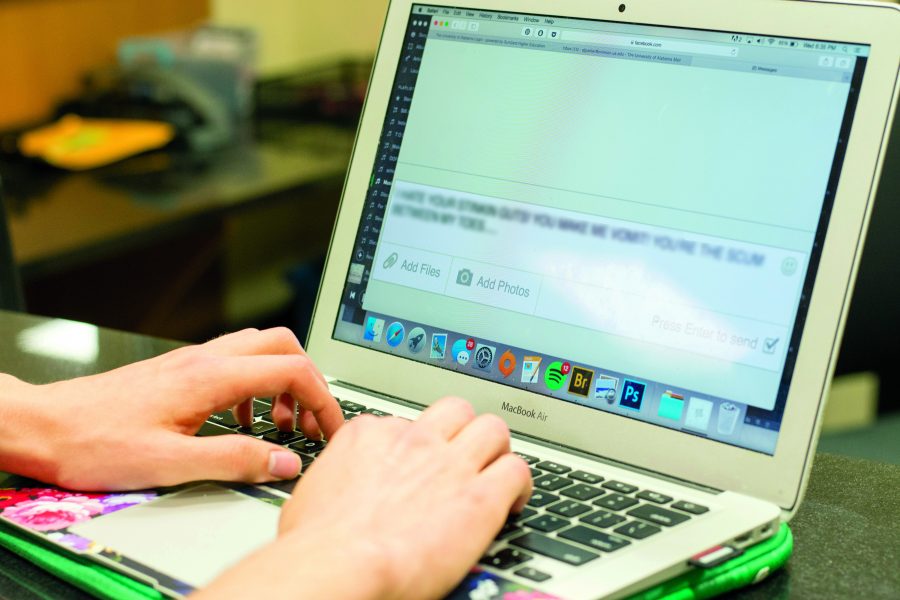With the rise of the Internet has come a rise in a relatively new form of crime, crime that does not entail the use of guns, knives or other traditional weaponry. Technology has elicited an expanse of opportunity for cybercriminals, who can commit felonies while simply sitting in front of a computer screen.
In the years from 2000 to 2014, there have been 3,175,611 reported complaints worldwide by victims of cybercrimes to the FBI’s Internet Crime Complaint Center, according to the FBI’s IC3 website. These crimes range from fraud and identity theft to stolen credit card information, electronic theft of money and data breaches.
“Not a day goes by when you open your newspaper or watch the news that there’s not some kind of a data security breach, computer hacks, Instagram problems and national security problems,” said Mark Lanier, associate director for the UA Cyber Institute, an educational organization developed to advance the understanding of the dynamics of cyber issues.
In 2014 alone, total reported losses amounted to over $800 million globally, according to the IC3.
“What we’re seeing in this day and age is that there are very few crimes that are committed without any form of technology,” said Diana Dolliver, assistant professor in the Department of Criminal Justice and academic liaison to the Alabama Joint Electronics Crimes Task Force. “It could be mobile devices. Anything from recorders to cellphones. We look at computers, external hard drives, XBOX’s and DVR’s.”
The JECTF was established in August 2014 by a grant received from the Alabama Department of Economic and Community Affairs. The lab, created through a partnership with the Criminal Justice Department and local law enforcement agencies, will help local and national law enforcement officials process cases and lead to prosecutions in cyber-related crimes.
When a crime is committed and the officers respond to it, if any evidence is digital, it is taken back to the lab to be extracted using digital forensics techniques.
Dolliver said typically government entities and large corporations are hit most by cyber-attacks.
But, in the past, some university students have fallen victim to cybercrime.
Between the months of July and August 2013, at least 25 university students had their MyBama user names and passwords collected by a fellow student who sought to illegally obtain money from federal and state student loan funds, according to a Tuscaloosa News article from April 2015.
Briana Jackson, 22, of Childersburg pled guilty to one count of unauthorized access to a protected computer as part of a plea agreement with the U.S. Attorney’s Office for the Northern District of Alabama and was indicted on April 3, according to the article.
Jackson created an email account, uaeduhousing@gmail.com, and requested MyBama user names and passwords from other students under the guise that the request came from the University, according to the article. More than 40 students responded to the request, and Jackson accessed at least 25 MyBama accounts between July and August of 2013. Jackson attempted to change direct deposit information for seven of the accounts to reroute state and federal student loan funds to money cards under her control that had been opened with identities taken from other students, according to the article. Jackson attempted to take around $41,331 from the accounts, but only succeeded in redirecting $9,597. She was able to withdraw about $1,000 before the University froze the account, according to the article.
Jackson was sentenced in August to five months in prison, according to a Tuscaloosa News article.
Students have been victims of thousands of phishing attacks over the past 18-24 months, said Ashley Ewing, chief information security officer for the UA Office of Information Technology.
“Do not be fooled by emails that want your ID and password,” Ewing said.
For more cybersafety tips as well as cybersecurity alerts, visit the UA Office of Information Technology website at oit.ua.edu









